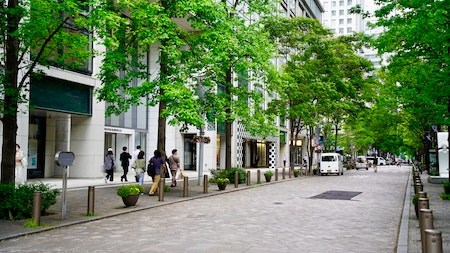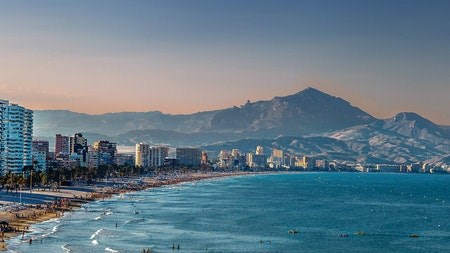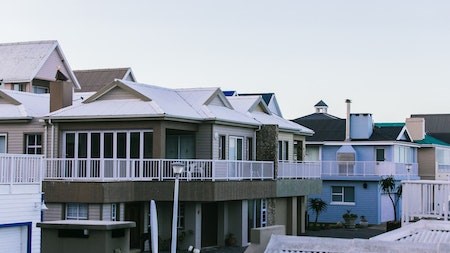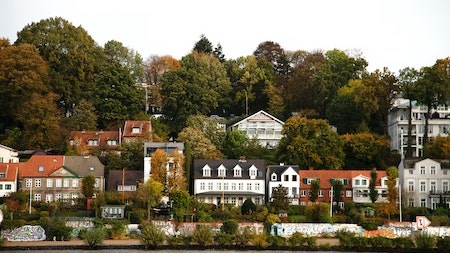The demand from semigration buyers for property across the Cape continues at a decent pace and it is unlikely that semigration to the Cape will lose steam, says Samuel Seeff, chairman of the Seeff Property Group. It may slow down, but only due to buyers being hamstrung by an inability to sell their houses elsewhere in the country.
Seeff assesses that the Cape metro is increasingly going to be seen as a new hub for head offices, and services including technology, with Amazon, Take A Lot and the like.
Factors behind semigration
Semigration may in fact pick up further due to the deterioration of service delivery in many municipalities. The desire to move to the Cape is also driven by a search for a better quality of life, he adds. Ross Levin, licensee for Seeff Atlantic Seaboard and City Bowl, for example, says that there is a strong influx of semigration buyers to the coastal suburbs.
While these buyers were traditionally from the Gauteng and inland areas, they are now also coming from the KZN region. Levin says high end buyers see the Cape as a rising hub, and they are investing. We are also seeing a stream of businesses moving to the city. A recent FNB report also reported that the commercial property sector in the City is doing better compared to most other areas with semigration being a boost for property development.
Market price range
There is no decline in prices here, in fact, Seeff’s property practitioners continue seeing a shortage of stock in many price bands, especially in the R3m to R18m range. The Cape has seen a massive bounce back in tourism and with that a welcome return in international buyers.
Looking at the sales statistics in Cape Town for this year, there have already been 51 sales above R20 million with a combined value of R1,767 billion. International buyers have also invested heavily in property during the first few months of this year, says Levin.
This includes Russian and European buyers (especially from Germany, the UK, Netherlands, etc.) who are looking for alternative markets to invest in while the Russian-Ukraine War continues.
Everybody now wants to be in Cape Town, and if you are a seller, then Cape Town is where you want to be selling right now. If you are a buyer, then Cape Town is where you want to invest right now, says Levin further.
Nadine Jocum, a property practitioner with the Seeff Camps Bay team says there has been an increase in demand for property in Camps Bay, especially above R5 million, but also in the luxury bands for houses and apartments up to R11 million and over R20 million.
Adrian Mauerberger and Bryan Ginsburg, luxury sectional title agents with Seeff Atlantic Seaboard say that luxury apartments are in high demand, especially in the R4,5 million to R8 million price bands, but buyers have paid up to R72 million for a super luxury beach apartment over the last year.
It is also not just sales, but the rental market is also exceptionally strong in Cape Town, boosted by inward demand, says Seeff further. Aside from the Atlantic Seaboard, the Blouberg, False Bay and Southern Suburbs are popular along with the Northern Suburbs and further out to the Winelands towns of Paarl, Stellenbosch and Somerset West.
Seeff also says, we continue seeing high end buyers spending notably more on property in Cape Town compared to elsewhere in the country. We are for example seeing higher prices paid in areas such as Stellenbosch and Hermanus which are seeing more high value sales as well as Paarl (mostly in Val de Vie) along with Plettenberg Bay where we are increasingly seeing property sales above R20 million.
While many areas in Cape Town are pricey, there are many areas which are still affordable and offer housing below R1.8 million. These areas such as the greater Milnerton/Blouberg area for example have seen significant semigration related sales and rentals.
Property values in the Cape have grown significantly faster and at a higher rate compared to the rest of the country. People move to Cape Town not because of the cost of property, but specifically for access to better services, but also a change of lifestyle - these two factors are seemingly going hand-in-hand for many buyers.
Writer: Gina Meintjes




